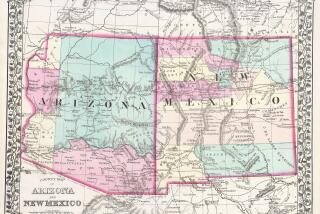Trolling, a criminal offense in Arizona?
Being annoying, offensive or maybe even provocative online could become illegal in Arizona if legislators move forward with a bill.
Arizona House Bill 2549 would amend the telephone harassment section of the state’s anti-stalking law to include the communication technology of the day in an effort to combat cyberbullying.
The portion in question reads: “It is unlawful for any person, with intent to terrify, intimidate, threaten, harass, annoy or offend, to use any electronic or digital device and use any obscene, lewd or profane language or suggest any lewd or lascivious act, or threaten to inflict physical harm to the person or property of any person.”
“Electronic or digital device” would supplant “telephone.” But the substitution may alter the focus of the law, some contend.
“Telephones are basically one-to-one devices, so a phone call that uses profane language to offend is likely meant only to offend the one recipient, rather than to persuade or inform anyone,” writes Eugene Volokh, who teaches free speech law at UCLA. “But computers used to post Facebook messages or send Twitter messages or post blog items can offend some listeners while persuading and informing others.”
Image all that use of “any obscene, lewd or profane language” over “any electronic or digital device” could cover: online cartoons, commentary, status updates, comments, tweets, blogs, feeds -- sent to individuals but also available for general consumption.
That could include provocative and offensive commenters, or trolls, on websites such as this one. And websites are accessible throughout the country, not just within a state. The law could have an effect on cyber-citizens outside Arizona.
It might be a stretch, but could HB 2549 be interpreted to include online video clips from shows such as Comedy Central’s “The Daily Show,” whose bread and butter is to provoke?
Because law deals with specificity of language, Volokh points out, interpretations of “profane language” could extend to material someone deems religiously offensive, potentially rendering the statute unconstitutional.
The Media Coalition, focused on 1st Amendment issues, has sent a memo to Arizona Gov. Jan Brewer, saying the changes expand the the bill to cover more than was probably intended.
As the note points out, nothing in the bill explicitly states that the objectional communication must be directed at an individual, something that could be assumed when it focused on telephone communication.
The group goes on to say, “There is no requirement that the recipient or subject of the speech actually feel offended, annoyed or scared. It is unclear if the communication must be intended to offend or annoy a specific person or if a general intent to do so is sufficient.”
There’s been much speculation online that trolling could land you in the pokey in Arizona if the bill is enacted. Trolls -- and the rest of the active online community -- can rest assured for now, however.
The bill was stopped in the House by one of its sponsors after having been unanimously approved by the state Senate. According to Phoenix New Times, state Rep. Vic Williams spoke with Media Coalition and is willing to get input and suggestions to help clarify the bill.
RELATED:
Police tracking of cellphones raises concerns
Tech firms’ data gathering worries Californians, poll finds
Asking job applicants for Facebook password, fair or legal?
Follow Michelle Maltais on Google+, Facebook or Twitter
Trolling, a criminal offense in Arizona?
More to Read
Inside the business of entertainment
The Wide Shot brings you news, analysis and insights on everything from streaming wars to production — and what it all means for the future.
You may occasionally receive promotional content from the Los Angeles Times.











